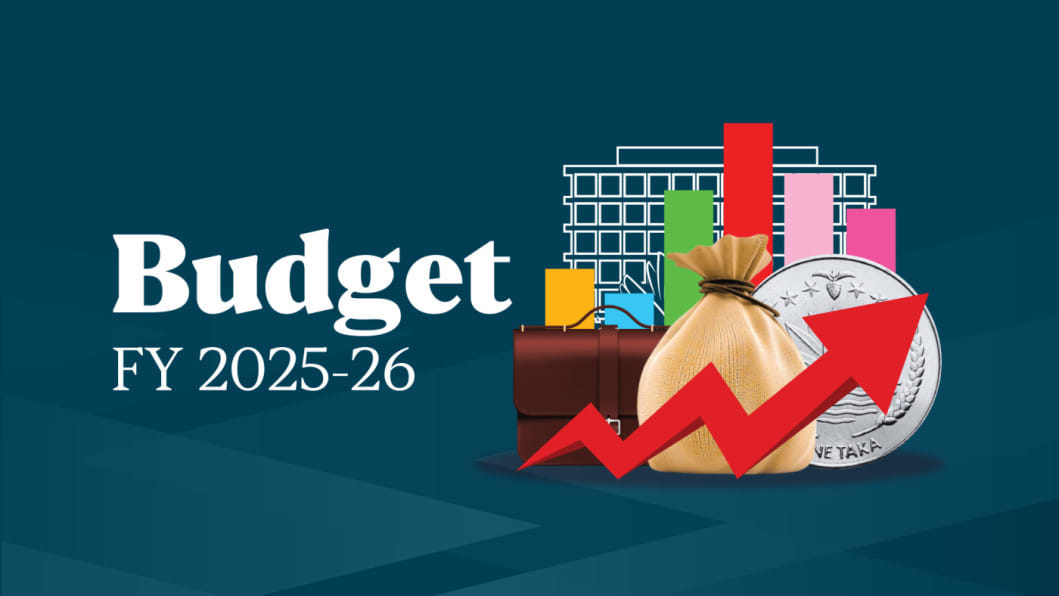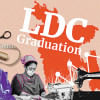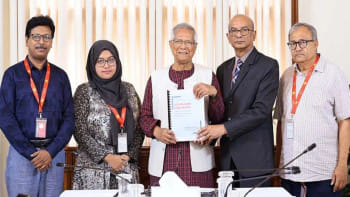Chambers warn budget may hurt business, investment

Just a day after the interim government proposed the national budget and tax measures for fiscal year 2025-26, leading business chambers expressed significant concern that several measures could potentially impede business growth and affect investment.
In a statement yesterday, the Metropolitan Chamber of Commerce and Industry (MCCI) said it is deeply concerned about the current investment climate.
It said the government has set a borrowing target of Tk 104,000 crore from the banking system, which is 5 percent higher than the revised budget for FY25.
"In doing so, the government may face two significant risks. First, increased borrowing from the banking sector could cause a crowding-out effect, reducing the availability of funds for private sector investors," it said.
"Second, borrowing from the central bank could increase inflationary pressure, affecting consumers or the public. Therefore, the MCCI stresses the need for a proper balance between these two options. Additionally, there should be a provision for restructuring the banking sector to ensure strategic financial management."
MCCI said government's increased borrowing from banks could cause a crowding-out effect, reducing availability of funds for private sector
With both public and private investment on the decline, the oldest chamber in Bangladesh said investment has dropped to its lowest point in the past 10 years, hitting 29.38 percent of the country's gross domestic product in FY25.
"This stagnation in investment has led to reduced employment opportunities and an increase in the number of people living in poverty. A weakening investment environment, exacerbated by factors such as official complexities and inadequate infrastructure, has intensified the economic crisis."
The MCCI said preparing the budget was a bold undertaking in the face of several challenges, including shrinking export markets due to rising inflation, sluggish investment trends, high bank lending rates, ongoing global conflicts, and Bangladesh's upcoming graduation from the list of least developed countries (LDCs) in 2026.
"Given the current context, implementing the budget will be highly challenging," it added.
The chamber also expressed disappointment over the proposed increase in turnover tax from 0.60 percent to up to 3 percent, depending on the sector, especially since no initiative has been taken to reduce the effective corporate tax rate.
The MCCI said a minimum tax being levied on turnover is contrary to sound tax policy.
Although the chamber said the increase in the allowable perquisite limit from Tk 10 lakh to Tk 20 lakh for employees will slightly reduce corporate tax expenses, it added, "The MCCI believes that there should be no cap on perquisites at all."
It also urged the interim government to expand the tax base through proper tax management and modern, inclusive tax policies.
It said the increase in the tax-free income threshold for individual taxpayers to Tk 375,000 for the assessment years 2026–2027 and 2027–2028 is welcome in view of the rising cost of living.
"However, because of changes in tax slabs and rates, the overall tax burden on taxpayers at all levels will increase."
Additionally, increasing the minimum tax for marginal taxpayers from Tk 3,000 to Tk 5,000 will enhance the tax burden on this vulnerable group.
The MCCI also said it believes it is necessary to limit the discretionary power of tax collection authorities.
Meanwhile, the Foreign Investors' Chamber of Commerce and Industry (FICCI) voiced significant concerns regarding several provisions of the proposed Finance Ordinance 2025, which could potentially impede business growth and increase the burden on compliant taxpayers.
A major concern lies with publicly traded companies that have less than 10 percent of their shares issued through an initial public offering, as they are slated to face an additional 7.5 percent corporate tax.
"The impact of this tax at a significantly increased rate appears to be discriminatory."
It said while the increase in the tax-exempt income threshold at the entry level is a positive step, the overall changes introduced in the tax structure are likely to impose an additional burden on middle-income earners when viewed in totality.
In another statement, Bangladesh Chamber of Industries (BCI) President Anwar-Ul-Alam Chowdhury (Parvez) said the government has made revenue collection the main goal in the proposed budget for FY26.
"Too much dependence has been placed on personal and corporate tax," he said. "Tax collection is low because of procedural limitations, and there is no direction to address this issue.
"We do not see any steps to expand the tax net."
The value-added tax on raw materials for the manufacturing sector has been increased, which will fuel production costs. "We do not know whether inflation will reduce through these measures.
"All have been prepared in line with the formula of the International Monetary Fund," he said.
Business Initiative Leading Development (BUILD) said the proposed budget lacked incentives to encourage private investment.
The International Business Forum of Bangladesh (IBFB) underscored the government's effort to craft a budget under fiscal pressure and economic uncertainty. "However, the absence of transformative reforms, private sector engagement, and a credible roadmap to inclusive growth makes this budget a missed opportunity.
"For Bangladesh to achieve sustainable development and global competitiveness post-LDC graduation, bold decisions must be made – anchored in structural reforms, public-private partnership, and good governance."
a

 For all latest news, follow The Daily Star's Google News channel.
For all latest news, follow The Daily Star's Google News channel. 








Comments